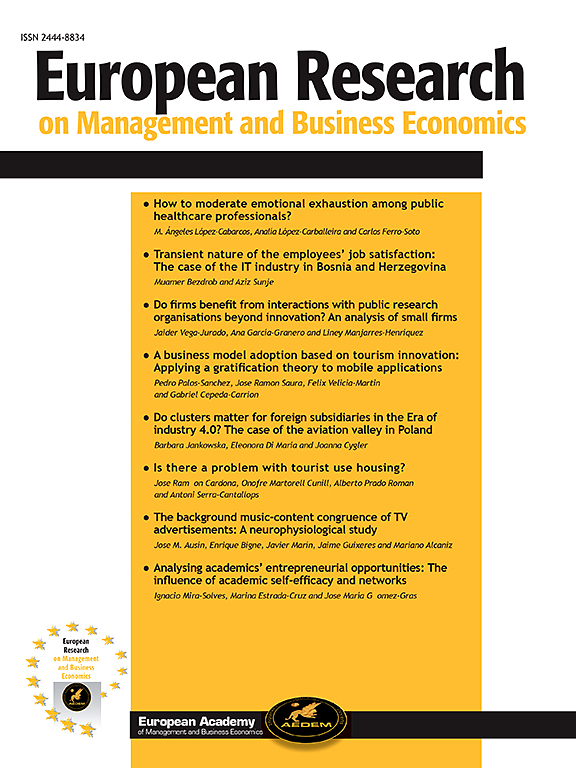Examine the factors influencing the behavioral intention to use social commerce adoption and the role of AI in SC adoption
IF 6.4
3区 管理学
Q1 BUSINESS
European Research on Management and Business Economics
Pub Date : 2025-01-01
DOI:10.1016/j.iedeen.2024.100268
引用次数: 0
Abstract
This study examines both technological and human perspectives on social commerce platform adoption. It analyzes user interactions, social networks, and peer recommendations to investigate the influence of social factors on adoption decisions. Furthermore, it examines how artificial intelligence is used to adapt social commerce. This study uses UTAUT2 and Social Cognitive theory to develop a consumer adoption model. Data were collected primarily through survey questionnaires. Structural equation modeling and confirmatory factor analysis were used to examine data from 460 respondents from different countries. According to the findings, consumers adopt social commerce platforms if they believe they are convenient and easy to use, supporting the theories of the Unified Theory of Acceptance and Use of Technology 2 and Social Cognitive theory. Behavioural intentions are influenced by social influence, habit, hedonic motivation, and AI-related experience, and trust moderates the effects.
AI tools, such as chatbots and recommendation engines, can target certain consumer categories better by leveraging insights on behavioural factors influencing SC adoption. Several AI-enabled tools, such as chatbots, AI user experiences, personalized suggestions, and intelligent algorithms, are changing how players engage with SC platforms. This study will offer a novel perspective on how AI affects users' behaviour by examining the relationship between AI technology and SC adoption.
考察影响使用社交商务的行为意向的因素以及人工智能在供应链采用中的作用
本研究从技术和人的角度考察了社交商务平台的采用。它分析了用户交互、社交网络和同行推荐,以调查社会因素对采用决策的影响。此外,它还研究了如何使用人工智能来适应社交商务。本研究运用UTAUT2和社会认知理论建立消费者采纳模型。数据主要通过调查问卷收集。采用结构方程模型和验证性因子分析对来自不同国家的460名受访者的数据进行了检验。根据研究结果,如果消费者认为社交电商平台方便易用,他们就会采用社交电商平台,这支持了技术接受和使用统一理论2和社会认知理论。行为意图受社会影响、习惯、享乐动机和人工智能相关经验的影响,信任调节了这种影响。人工智能工具,如聊天机器人和推荐引擎,可以利用对影响SC采用的行为因素的见解,更好地瞄准某些消费者类别。一些支持AI的工具,如聊天机器人、AI用户体验、个性化建议和智能算法,正在改变玩家与SC平台的互动方式。本研究将通过研究人工智能技术与SC采用之间的关系,为人工智能如何影响用户行为提供一个新的视角。
本文章由计算机程序翻译,如有差异,请以英文原文为准。
求助全文
约1分钟内获得全文
求助全文
来源期刊
CiteScore
11.70
自引率
3.40%
发文量
30
审稿时长
50 weeks
期刊介绍:
European Research on Management and Business Economics (ERMBE) was born in 1995 as Investigaciones Europeas de Dirección y Economía de la Empresa (IEDEE). The journal is published by the European Academy of Management and Business Economics (AEDEM) under this new title since 2016, it was indexed in SCOPUS in 2012 and in Thomson Reuters Emerging Sources Citation Index in 2015. From the beginning, the aim of the Journal is to foster academic research by publishing original research articles that meet the highest analytical standards, and provide new insights that contribute and spread the business management knowledge

 求助内容:
求助内容: 应助结果提醒方式:
应助结果提醒方式:


